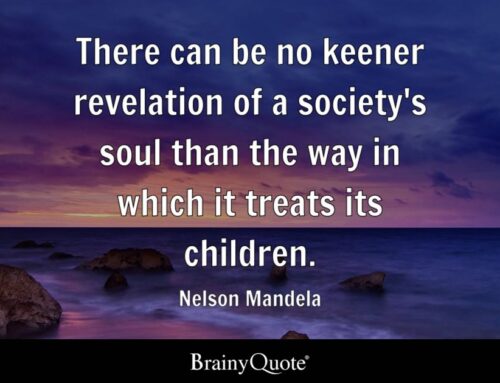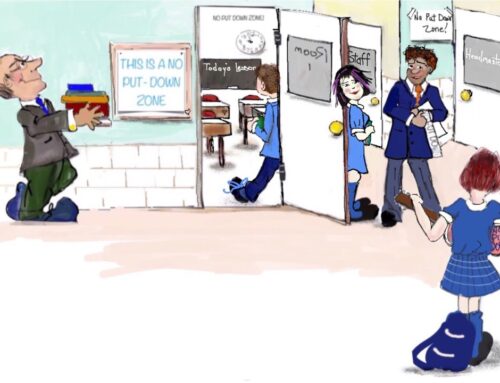I was shocked recently to hear that many small children are coming into Early Years Provision at 3 years old with almost non-existent language skills. A teacher told me that it was bad before lockdown but has since got much worse. Are new parents not being told how important it is to talk to their baby? This is the way they begin to learn about themselves, the world around them and make all those neural connections that support cognitive development – thinking skills.
I have gone on about this at length in my work as an educational psychologist, so it is unsurprising my own children have taken this on board as new parents. My daughter lays her infant son on the change mat explaining to him everything that is happening.
Just going to lift your head now so we can get this wet vest off. There you go.
Now let’s do the poppers on your sleep suit, one, two, three, four, five, six.
Now let’s put this leg in first, thank you for helping, little one.
You are such a beautiful boy. Yes, you are.
Both dads do the same and are particularly good at singing to their son. He regularly hears the same songs providing familiarity, security and connection. A musical comfort blanket!
At five weeks JJ began to smile. At nine weeks he began vocalising back with an increasing variety of sounds. He is already learning the dance of communication and clearly enjoying this. This is laying the foundation for future learning, confidence and relationships.
My grand-daughter at 21 months understands most of what you say to her and has a rapidly increasing one- and two-word vocabulary that any day now will evolve into full sentences. Not only have her parents talked to her from birth, they have also read books to her, so she has made connections between the spoken and written word.
One parent I met in my work said that there didn’t seem much point talking to children until they can talk back … as if they were from a far-off land! The part of the brain that deals with receptive language – what we hear – is not the same as the part of the brain that deals with expressive language – what we say. It is not surprising that the receptive part matures faster, as speaking involves so many motor skills as well as understanding and choosing words. For those that are interested in finding out more, it is the Wernicke’s area in the brain that deals with understanding language – both written and spoken – and Broca’s for speaking. This is a great article by David Abbott in the Conversation explaining all this.
There are so many opportunities for talking with babies. While you are cooking tell them what you are making – even if it’s only a cup of tea, when you are shopping talk about what you are choosing. Don’t worry about strange looks from others – you know what you are doing and why!
Keep your child with you as much as you can – perhaps in a sling or bouncer. When you place them in front of a screen – which is what has inevitably happened in lockdown – this is not talking WITH them, it is talking AT them and does very little for a young child’s development. Although useful at times to give a tired parent a break, it needs to be the exception rather than the rule.








Leave A Comment
You must be logged in to post a comment.